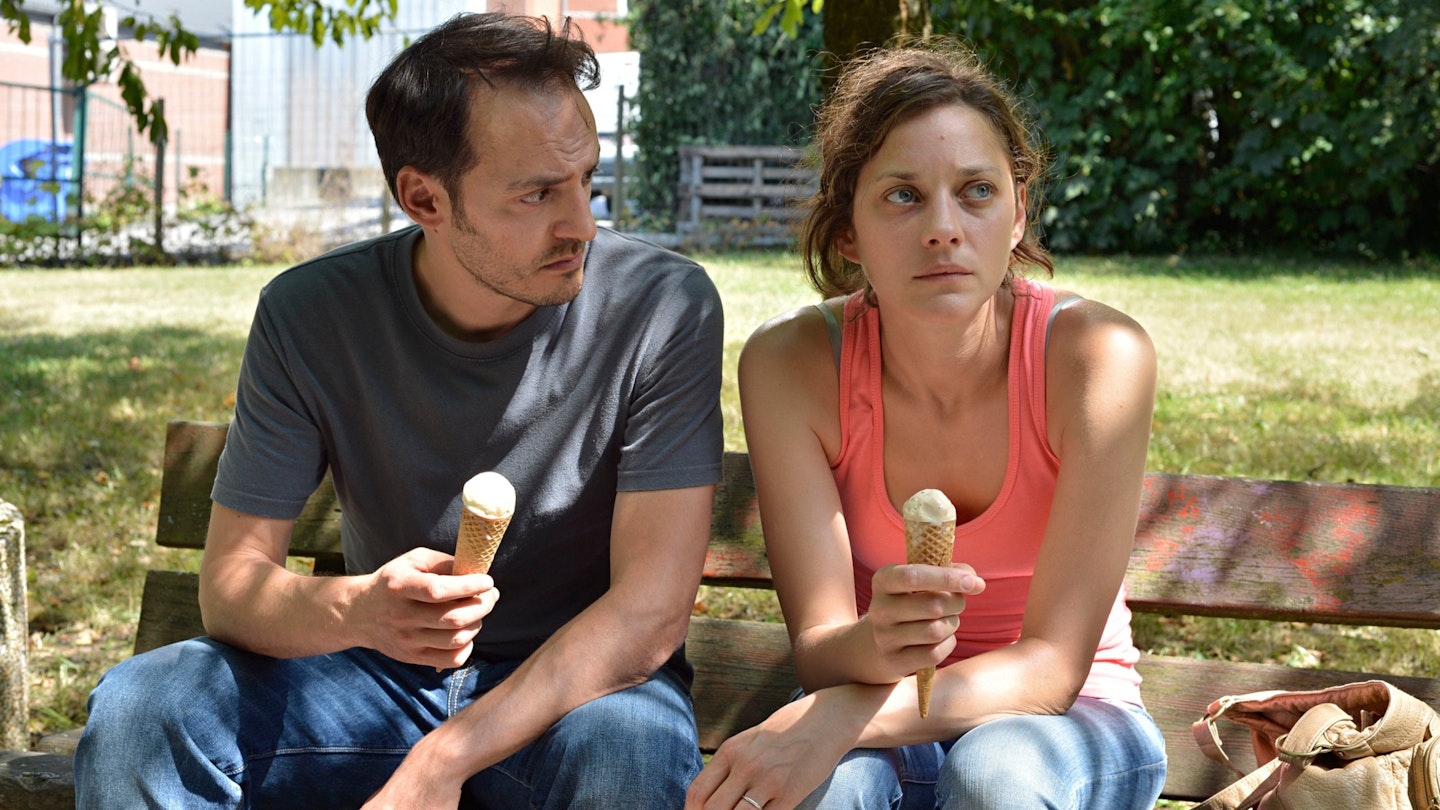Belgian writer-director brother act Jean-Pierre and Luc Dardenne specialise in a brand of down-to-earth, socially committed, unfussy realism that makes Ken Loach seem like Zack Snyder... and yet their latest film manages to be an acutely credible portrait of the victims of a casually cruel (yet horribly believable) social system and also a suspenseful, gripping drama on the pattern of 12 Angry Men.
Its instantly-affecting hook is the heroine’s need to get more than eight of a 16-person workforce to volunteer to give up their own much-needed bonuses so she can keep her job. She’s just come out of a period of clinical depression and redundancy might tip her back into a near-suicidal state, but she knows everyone else has a sob story too. Marion Cotillard, among the contemporary screen’s best actors, inhabits a role so deeply you soon forget her famous face and see only the agonised, embarrassed, end-of-her-tether Sandra, forever on the point of giving up her humiliating quest and taking to her bed while it’s still light outside. The round of encounters with vivid cameo characters offers repetition with variations of a single, dramatic set-up. It’s impossible not to be moved as Sandra explains yet again why she’s making a personal call on busy people over a weekend. The reactions of her workmates vary from abject contrition to resentful violence and a complex pattern of relationships is drawn out, under the shadow of a cavalier, cynical system that has forced this appalling choice on people in order to shift the blame from management.
Complicating the story is the impression Cotillard conveys that maybe the Xanax-popping Sandra — for all the support from her husband (Fabrizio Rongione), kids and loyal friends — really isn’t mentally up to going back to work. Then again, her round of pleading calls would be stressful and depressing enough to break the will and mind of a completely balanced person.


